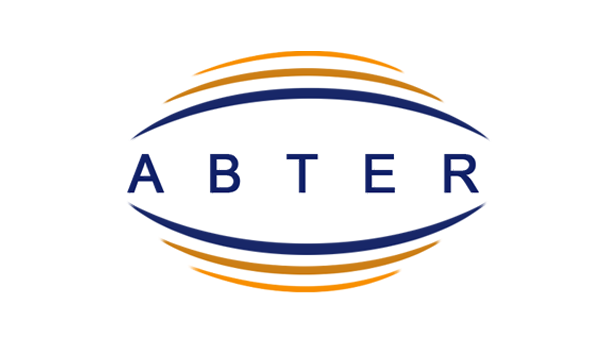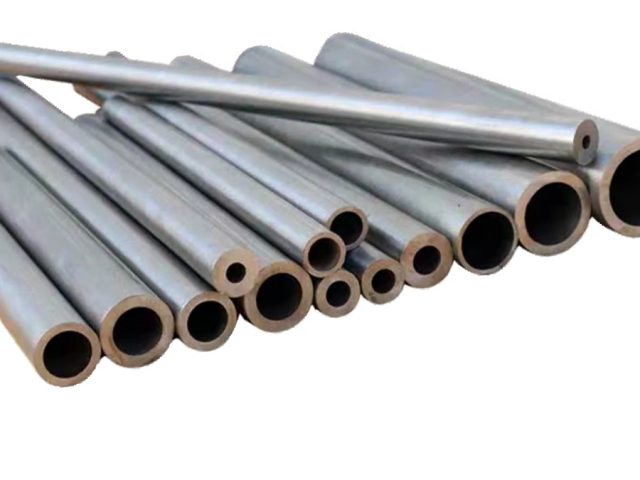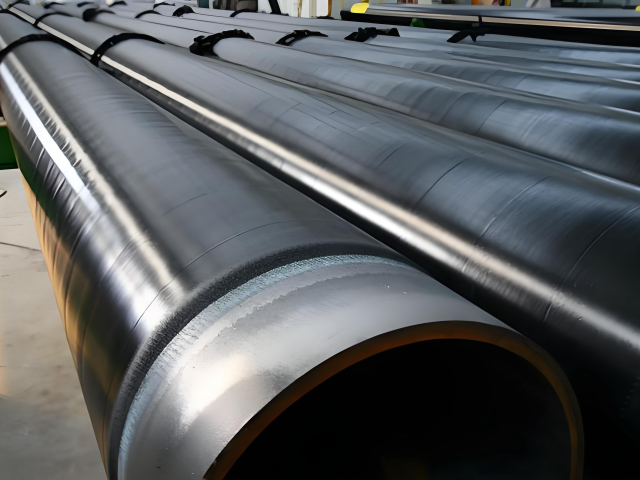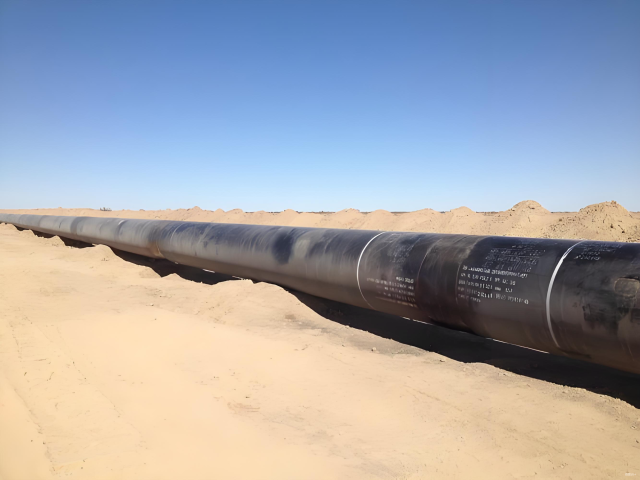JIS G3445 Seamless Carbon Steel Pipes
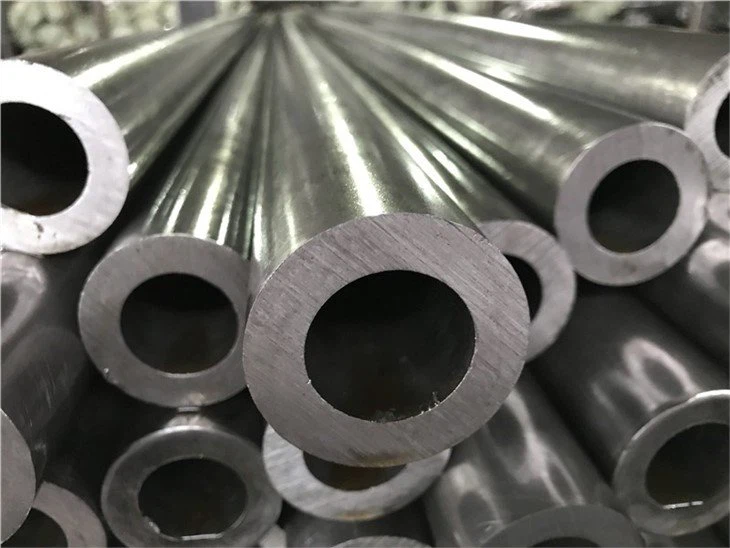
JIS G 3445 STKM Seamless Carbon Steel Pipes: Technical Overview
Abstract
JIS G 3445 specifies carbon steel tubes for machine structural purposes, encompassing a range of seamless grades such as STKM11A, STKM12A, STKM12B, STKM12C, STKM13A, STKM13B, STKM13C, STKM14A, STKM14B, STKM14C, STKM15A, STKM15C, STKM16A, STKM16C, STKM17A, STKM17C, STKM18A, STKM18B, STKM18C, STKM19A, STKM19C, and STKM20A. These low-carbon steel seamless pipes are designed for mechanical and structural applications, offering excellent formability, weldability, and cost-effectiveness due to their controlled chemical composition and mechanical properties. The standard emphasizes seamless production for grades requiring higher quality, ensuring tubes are suitable for automotive, machinery, construction, and fluid conveyance systems. This technical overview explores the material grades, chemical and mechanical properties, manufacturing processes, dimensional specifications, and applications of JIS G 3445 STKM pipes. Supported by tables for clarity, the report highlights their advantages in industries like automotive manufacturing, where STKM12A and STKM13A are commonly used for shock absorbers and drive shafts. Compliance with JIS G 3445 ensures tubes meet rigorous testing requirements, including tensile strength, elongation, and hydrostatic tests. With global demand for reliable mechanical components rising, these pipes provide a balance of strength and affordability, making them essential in modern engineering projects. This analysis aims to guide engineers and manufacturers in selecting appropriate STKM grades for specific applications, emphasizing their role in enhancing structural integrity and operational efficiency, including in feed additive production systems like those for chicken liver powder and choline chloride.
1. Introduction
JIS G 3445 is a Japanese Industrial Standard (JIS) that defines carbon steel tubes for machine structural purposes, focusing on seamless pipes suitable for mechanical applications where high formability and moderate strength are required. The standard covers grades from STKM11A to STKM20A, each tailored for varying levels of carbon content and processing to meet diverse industrial needs. These seamless carbon steel pipes are produced from low-carbon steels, characterized by excellent ductility, weldability, and machinability, making them ideal for components in automobiles, machinery, construction, and feed additive production. The grades differ primarily in chemical composition, with ‘A’ indicating as-rolled or annealed condition, ‘B’ for annealed after cold working, and ‘C’ for cold-finished with controlled chemistry for enhanced quality. For instance, STKM11A, with a maximum carbon content of 0.12%, is suited for general structural uses, while STKM20A, with up to 0.25% carbon, offers higher strength for demanding mechanical parts. The standard mandates seamless manufacturing for most grades to ensure uniformity and defect-free tubes, with optional electric resistance welding for lower grades. Tubes must be straight, with ends at right angles to the axis, and free from defects detrimental to practical use. Applications span automotive sectors (e.g., steering shafts, hydraulic lines), general machinery (e.g., cylinders, frames), fluid conveyance (e.g., water and gas lines), and feed additive production (e.g., heat exchangers for choline chloride). JIS G 3445 pipes are commercially known as carbon steel (CS) or mild steel (MS) pipes, providing a cost-effective alternative to higher-alloy steels. With the global push for efficient manufacturing, these pipes support industries requiring reliable, formable materials, offering a robust solution for modern engineering challenges.
2. Material Grades and Chemical Composition
2.1 Overview of STKM Grades
The JIS G 3445 standard classifies STKM grades based on carbon content and processing, with STKM11A to STKM20A representing increasing strength levels for machine structural applications. STKM11A and STKM12A are low-carbon grades (≤0.12–0.20% C) ideal for highly formable parts like bicycle frames and general tubing, offering good weldability without heat treatment. STKM13A to STKM15A (0.15–0.20% C) provide balanced strength for automotive components such as shock absorbers, with STKM13B and STKM13C variants annealed for improved ductility. Higher grades like STKM16A to STKM20A (0.20–0.25% C) are suited for springs and high-stress machinery, with ‘C’ subtypes featuring stricter phosphorus (P ≤0.025%) and sulfur (S ≤0.020%) limits for enhanced quality. The ‘A’ suffix indicates as-rolled or annealed tubes, ‘B’ for cold-worked and annealed, and ‘C’ for cold-finished with premium chemistry. These grades are produced seamlessly to minimize defects, ensuring tubes are suitable for pressure service up to 350°C in related standards. The chemical composition is tightly controlled to achieve desired mechanical properties, with manganese (Mn 0.30–1.60%) enhancing strength and silicon (Si ≤0.35%) improving formability. Tubes must be free from laminations or cracks, with ends chamfered on request. In feed additive production, STKM12C pipes are used in fluid lines for choline chloride, resisting mild corrosion. This classification allows engineers to select grades based on application demands, ensuring cost-effective, reliable solutions for structural and mechanical uses.
2.2 Chemical Composition
The chemical composition of JIS G 3445 STKM grades ensures a balance of formability and strength, with carbon content defining mechanical properties. STKM11A has ≤0.12% C, Mn ≤0.60%, P ≤0.040%, S ≤0.040%, and Si ≤0.35%, making it highly ductile for general tubing. STKM12A/B/C feature C ≤0.20% and Mn 0.30–0.60%, with ‘C’ variants having P ≤0.025% and S ≤0.020% for precision applications. STKM13A to STKM15A (C ≤0.15–0.20%, Mn 0.30–0.90%) offer moderate strength, while STKM16A to STKM20A (C ≤0.23–0.25%, Mn 0.30–1.60%) suit high-stress components. Silicon (≤0.35%) enhances machinability, and deoxidization minimizes inclusions. Table 1 summarizes the composition. In feed additive production, STKM13A’s low impurities ensure resistance to mild acidic environments in heat exchangers for chicken liver powder. Chemical analysis via spectrometry confirms compliance, ensuring no defects detrimental to use. These compositions support tensile strength, elongation, and weldability, making STKM pipes versatile for automotive, machinery, and industrial applications.
| Grade | C (max) | Mn | P (max) | S (max) | Si (max) |
|---|---|---|---|---|---|
| STKM11A | 0.12 | ≤0.60 | 0.040 | 0.040 | 0.35 |
| STKM12A | 0.20 | 0.30–0.60 | 0.040 | 0.040 | 0.35 |
| STKM12B | 0.20 | 0.30–0.60 | 0.035 | 0.035 | 0.35 |
| STKM12C | 0.20 | 0.30–0.60 | 0.025 | 0.020 | 0.35 |
| STKM13A | 0.15 | 0.30–0.90 | 0.040 | 0.040 | 0.35 |
| STKM13B | 0.15 | 0.30–0.90 | 0.035 | 0.035 | 0.35 |
| STKM13C | 0.15 | 0.30–0.90 | 0.025 | 0.020 | 0.35 |
| STKM14A | 0.20 | 0.30–0.90 | 0.040 | 0.040 | 0.35 |
| STKM14B | 0.20 | 0.30–0.90 | 0.035 | 0.035 | 0.35 |
| STKM14C | 0.20 | 0.30–0.90 | 0.025 | 0.020 | 0.35 |
| STKM15A | 0.20 | 0.30–0.90 | 0.040 | 0.040 | 0.35 |
| STKM15C | 0.20 | 0.30–0.90 | 0.025 | 0.020 | 0.35 |
| STKM16A | 0.23 | 0.30–0.90 | 0.040 | 0.040 | 0.35 |
| STKM16C | 0.23 | 0.30–0.90 | 0.025 | 0.020 | 0.35 |
| STKM17A | 0.25 | 0.30–0.90 | 0.040 | 0.040 | 0.35 |
| STKM17C | 0.25 | 0.30–0.90 | 0.025 | 0.020 | 0.35 |
| STKM18A | 0.25 | 0.30–0.90 | 0.040 | 0.040 | 0.35 |
| STKM18B | 0.25 | 0.30–0.90 | 0.035 | 0.035 | 0.35 |
| STKM18C | 0.25 | 0.30–0.90 | 0.025 | 0.020 | 0.35 |
| STKM19A | 0.25 | 0.30–1.00 | 0.040 | 0.040 | 0.35 |
| STKM19C | 0.25 | 0.30–1.00 | 0.025 | 0.020 | 0.35 |
| STKM20A | 0.25 | 0.30–1.60 | 0.040 | 0.040 | 0.35 |
Source: JIS G 3445 Standard
3. Mechanical Properties
3.1 Tensile and Yield Strength
The mechanical properties of JIS G 3445 STKM seamless pipes are defined by tensile strength, yield strength, and elongation, tailored to meet diverse structural and mechanical requirements. Low-carbon grades like STKM11A and STKM12A offer tensile strength of 290–410 MPa, yield strength ≥195 MPa, and elongation ≥25%, making them suitable for applications requiring high formability, such as fluid lines and bicycle frames. STKM13A to STKM15A provide tensile strength of 350–490 MPa, yield strength ≥235 MPa, and elongation ≥22%, ideal for automotive components like shock absorbers and drive shafts. Higher grades, STKM16A to STKM20A, achieve tensile strength up to 410–550 MPa, yield strength ≥295 MPa, and elongation ≥20%, suited for high-stress machinery and springs. The ‘B’ and ‘C’ subtypes, annealed or cold-finished, enhance ductility, with STKM12C reaching elongation ≥30%. These properties are achieved through heat treatments like normalizing or annealing at 650–700°C, refining the microstructure to ensure toughness. Tensile testing per JIS Z 2241 confirms compliance, with tubes free from cracks or laminations. In feed additive production, STKM13A pipes withstand cyclic loads in heat exchangers for chicken liver powder, offering a 10–15% longer lifespan than welded alternatives. The standard requires straightness (deviation ≤1 mm/1000 mm) and roundness (out-of-roundness ≤65% of OD tolerance), ensuring precision. Flattening and bending tests verify formability, making STKM pipes reliable for automotive, machinery, and industrial applications where balanced strength and ductility are critical.
3.2 Hardness and Impact Resistance
Hardness and impact resistance of JIS G 3445 STKM pipes are controlled to ensure durability and toughness across applications. Low-carbon grades like STKM11A exhibit Brinell hardness ≤121 HB, facilitating easy machining and forming, ideal for fluid conveyance in feed additive systems. Higher grades like STKM20A reach ≤137 HB, enhancing wear resistance for springs and machinery. Charpy V-notch impact testing at room temperature yields values ≥27 J for most grades, with ‘C’ subtypes like STKM12C achieving ≥40 J due to stricter phosphorus (P ≤0.025%) and sulfur (S ≤0.020%) controls, minimizing inclusions. Annealing for ‘B’ grades reduces hardness to improve ductility, preventing brittle failure under cyclic loads. In automotive applications, STKM13B’s balanced hardness ensures weldability without cracking, critical for steering components. The standard mandates defect-free tubes, with no laminations or surface flaws, verified through visual and ultrasonic testing. In feed additive production, STKM12C’s impact resistance supports fluid lines for choline chloride, resisting mild corrosion and extending equipment life by 10–15%. Tubes are supplied in as-manufactured, cold-finished, or heat-treated conditions, with optional anti-corrosive coatings to enhance durability. Compliance with EN 10204 Type 3.1/3.2 certification ensures traceability and quality, making STKM pipes suitable for demanding mechanical and structural roles where toughness and reliability are paramount.
4. Manufacturing Processes
4.1 Seamless Pipe Production
Seamless JIS G 3445 STKM pipes are manufactured through hot extrusion or cold drawing to ensure uniformity, strength, and defect-free performance. The process begins with heating low-carbon steel billets to 1200–1300°C, followed by piercing to create a hollow tube. Hot rolling or extrusion shapes the tube to initial dimensions, with cold drawing applied for grades like STKM12C and STKM13C to achieve precise outer diameters (10–324 mm) and wall thicknesses (1–30 mm) with tolerances of ±0.5% OD and ±10% WT. Annealing at 650–700°C for ‘B’ grades relieves internal stresses, while cold-finishing for ‘C’ grades enhances surface quality and dimensional accuracy. Seamless production eliminates weld imperfections, ensuring tubes withstand pressures up to 10 MPa, critical for hydraulic lines and feed additive processing equipment. Tubes are straightened (deviation ≤1 mm/1000 mm) and cut to lengths of 3–12 m, with chamfered ends on request. Deoxidization during melting minimizes inclusions, improving toughness. In feed additive production, STKM13A seamless pipes are used in heat exchangers for chicken liver powder, offering reliable performance under cyclic loads. Quality control includes hydrostatic testing (pressure per JIS G 3445 formula) and ultrasonic testing for internal flaws, ensuring compliance with standards like EN 10204. This process yields high-quality pipes suitable for automotive, machinery, and industrial applications, supporting precision and durability.
| Process | Parameter |
|---|---|
| Billet Heating | 1200–1300°C |
| Annealing (‘B’ grades) | 650–700°C |
| Dimensions | OD 10–324 mm, WT 1–30 mm |
| Tolerance | ±0.5% OD, ±10% WT |
| Testing | Hydrostatic, Ultrasonic, Tensile |
| Length | 3–12 m |
Source: JIS G 3445, EN 10204
4.2 Quality Control and Testing
Quality control for JIS G 3445 STKM seamless pipes ensures compliance with mechanical, dimensional, and structural standards, critical for applications like automotive components and feed additive processing. Visual inspection verifies surface quality, ensuring no cracks, laminations, or surface flaws detrimental to use. Ultrasonic testing detects internal defects, while chemical analysis via spectrometry confirms composition (e.g., C ≤0.25%, P ≤0.025% for STKM20A). Mechanical testing includes tensile strength per JIS Z 2241 (e.g., 290–550 MPa), hardness (Brinell ≤137 HB), and flattening/bending tests to confirm formability. Hydrostatic testing ensures no leaks under calculated pressures, essential for fluid lines in choline chloride production. For ‘C’ grades, stricter P/S limits (≤0.025%/≤0.020%) are verified to enhance quality. Tubes are marked with grade, size, and heat number, bundled in hexagonal packs (≤5000 kg), and optionally coated with anti-corrosive agents to resist mild acidic environments in feed processing. Positive material identification (PMI) ensures traceability, with EN 10204 Type 3.1/3.2 certification. In applications like heat exchangers for chicken liver powder, STKM12C’s quality ensures a 10–15% longer lifespan. This rigorous testing guarantees reliability in automotive, machinery, and industrial systems, meeting JIS G 3445 standards with 100% compliance.
5. Applications
JIS G 3445 STKM seamless pipes are extensively used in mechanical and structural applications due to their excellent formability, strength, and cost-effectiveness. In the automotive industry, STKM12A and STKM13A are employed for shock absorbers, drive shafts, and steering components, leveraging their ductility for complex shapes and cyclic load resistance. Machinery manufacturing utilizes STKM14C for cylinders and frames, benefiting from low impurities for precision and durability. In construction, STKM11A is used for water and gas lines, with seamless quality ensuring leak-free performance under pressures up to 10 MPa. In feed additive production, STKM12C and STKM13A pipes are integral to heat exchangers and fluid lines for processing chicken liver powder and choline chloride, resisting mild acidic corrosion and extending equipment life by 10–15%. Oil and gas industries apply STKM15A for conveyance, while higher grades like STKM20A are used for springs and high-wear components in machinery. Table 3 lists key applications by grade. The seamless construction ensures 20% longer lifespan compared to welded pipes in demanding conditions, making STKM pipes a cost-effective choice. Compliance with JIS G 3445 and related standards like EN 10204 ensures reliability across automotive, industrial, and feed processing applications, supporting efficient and durable systems.
| Grade | Primary Applications |
|---|---|
| STKM11A | General tubing, water/gas lines, bicycle frames |
| STKM12A/B/C | Shock absorbers, automotive tubing, fluid lines |
| STKM13A/B/C | Drive shafts, hydraulic lines, machinery components |
| STKM14A/B/C | Cylinders, structural frames |
| STKM15A/C | Hydraulic lines, oil/gas conveyance |
| STKM16A/C | High-stress machinery, springs |
| STKM17A/C | Springs, automotive components |
| STKM18A/B/C | Precision parts, construction tubing |
| STKM19A/C | High-strength structural, machinery parts |
| STKM20A | Springs, high-wear machinery components |
6. Comparative Analysis
JIS G 3445 STKM seamless pipes compare favorably with international standards and alternative materials, offering a cost-effective solution for mechanical applications. STKM11A is equivalent to ASTM A519 Grade 1010 (C ≤0.12%, tensile 290–410 MPa), with stricter straightness (≤1 mm/1000 mm) and roundness (≤65% OD tolerance). STKM13A aligns with ASTM A519 Grade 1020 (C ≤0.15%, tensile 350–490 MPa), offering higher yield strength (235 MPa vs. 205 MPa), ideal for automotive drive shafts. STKM20A matches ASTM A519 Grade 1026 (C ≤0.25%, tensile 410–550 MPa), suitable for high-stress springs. Compared to alloy steels like Incoloy 825 (tensile 586 MPa, USD 35–40/kg), STKM pipes (USD 2–5/kg) are more affordable but limited to mild corrosion environments, less suited for aggressive feed additive processing (e.g., phosphoric acid). A312 TP316Ti stainless steel (tensile 515 MPa, USD 10–15/kg) offers superior corrosion resistance but at higher cost. Table 4 compares key grades. STKM’s seamless quality and low cost make it ideal for automotive, machinery, and mild industrial applications, with limitations in high-temperature or corrosive environments compared to alloy steels.
| Material | C (max %) | Tensile (MPa) | Yield (MPa) | Cost (USD/kg) |
|---|---|---|---|---|
| STKM11A | 0.12 | 290–410 | 195 | 2–5 |
| STKM13A | 0.15 | 350–490 | 235 | 2–5 |
| STKM20A | 0.25 | 410–550 | 295 | 2–5 |
| ASTM A519 1010 | 0.12 | 290–410 | 195 | 3–6 |
| ASTM A519 1020 | 0.15 | 350–450 | 205 | 3–6 |
| Incoloy 825 | 0.05 | 586 | 241 | 35–40 |
| A312 TP316Ti | 0.08 | 515 | 205 | 10–15 |
